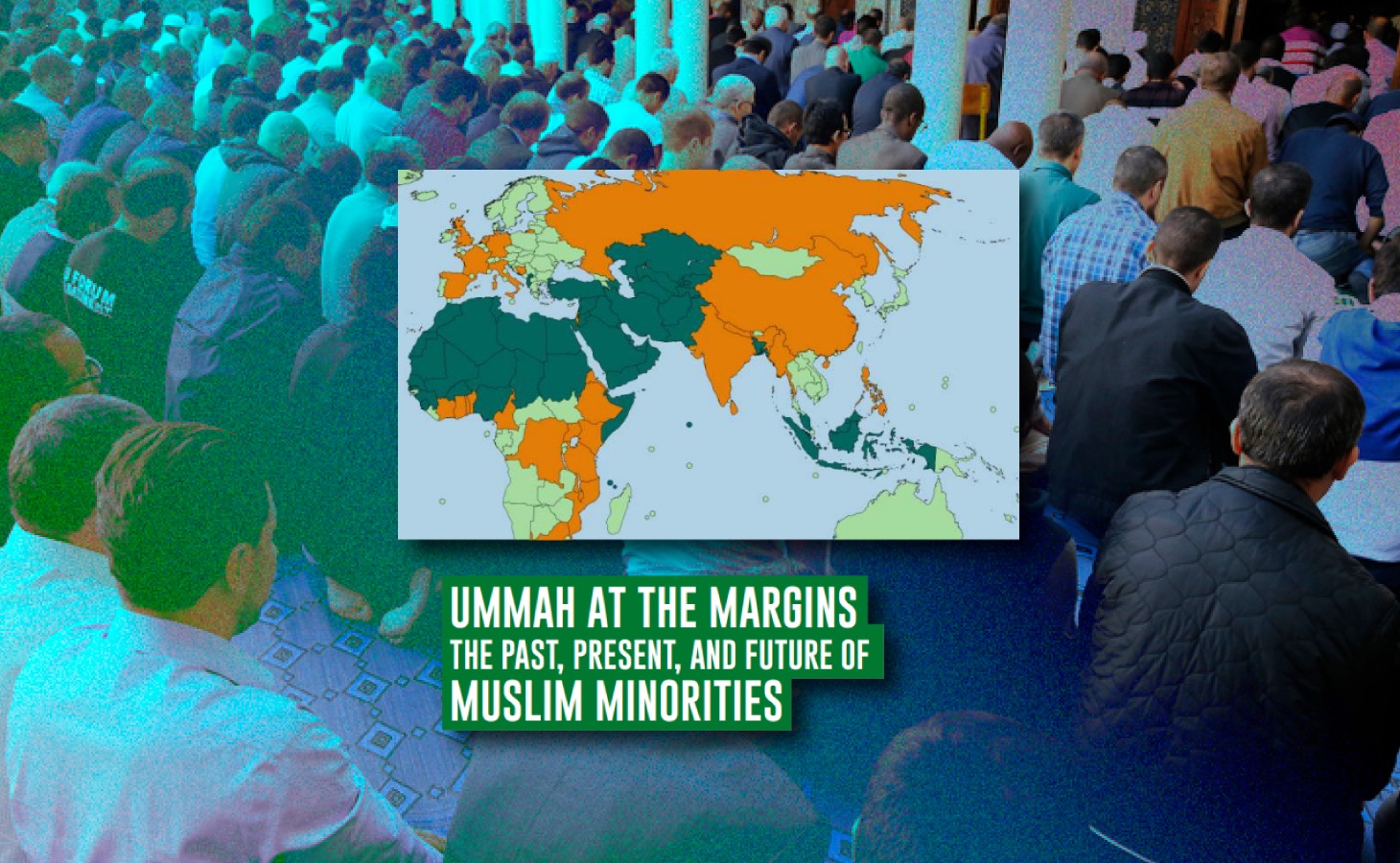A new report from the Ayaan Institute looks at Muslim minorities and the state of the Ummah in the world.
“Ummah at the Margins – The Past, Present and Future of Muslim Minorities” is a comprehensive 58-page report that lays out the status of Muslim minorities in secular societies and how they relate to the Muslim majority world.
The author Yahya Birt said the report’s primary goal is to find out how the Muslim minority and majority world can unite as an Ummah and mutually empower each other.
“What we don’t want is a kind of zero-sum game, where the flourishing of one will harm the other. What we need to do is to find a way to have a win-win situation for the Ummah,” Birt told Islam Channel.
“That means that we have to rethink the relationship between Muslim majority countries and Muslim minorities around the world,” he added.
Yahya said the two groups must find ways to have dialogue.
“There’s no simple way to make that happen. But we will need to build institutions and networks and exchanges to improve communication for that dialogue to happen,” he said.
“The report is putting that on the table; that mutual empowerment comes when the minority Muslim world and the majority Muslim world have a serious grown-up conversation about how we can help each other rather than get sucked into a kind of nationalistic competition that creates a kind of lose-lose situation,” added Birt.
Birt said the Ayaan Institute will build on this report in the future to outline some concrete and practical measures for Muslim minority and Muslim majority empowerment.
9 points from the report
Here’s a look at the nine key points from the report that you should know about.
1) 22% of ummah live as minorities
Nearly a quarter of Muslims (424 million in 2020) live as minorities in the world and around half of are in India — India has the second-largest Muslim population after Indonesia. The report says this means the status of India’s minorities sets the global agenda for the state treatment of Muslim minorities everywhere.
2) Overall freedom doesn’t equal to freedom for Muslim minorities
Evidence shows that just because a country has overall freedoms, it doesn’t mean Muslim minorities can freely practice their faith; for example, some countries in Western Europe. This suggests that religious discrimination against Muslim minorities needs focused attention and targeted measures beyond general calls for raising freedoms in a country.
3) Solidarity between majority and minority Muslims
The Ummah will thrive when the minority and majority Muslim worlds connect and they work together in a cycle of mutual empowerment.
4) Four ways for Muslim minorities to thrive
- Save democracy from big business. Democracy is hollowing out with big business calling the shots regarding the political system. Politicians serve the interest of big business, which hurts the economically less well-off — and Muslim minorities are often amongst the poorest.
- Work for peaceful, deeply pluralistic societies, inclusive of religious minorities.
- Make anti-islamophobia central to anti-racism. Given what Muslims have gone through over the last couple of decades, Islamophobia has to be central to any conversation about anti-racism.
- Protect Muslim minority rights. Recognise Muslim institutions and include them within the mainstream, accepting their differences rather than forcing assimilation.
5) Ten steps to creating stronger Muslim minorities
- Build transnational alliances, don’t isolate yourself as minorities
- Champion your cause to the Ummah
- Act locally within your community and move things forward but think globally also about the politics of the Ummah.
- Build independent institutions in religious life, education, philanthropy, advocacy, and media and creative cultural space.
- Separate political advocacy from religious sectors to protect each other. Advocacy is more high risk. Pragmatically keep them separate as a form of protection.
- Build alliances and coalitions in the advocacy space. Coalitions often based on single issues, while alliances are more permanent and based on shared values.
- Empower the community materially and spiritually. Muslims must understand that what we do is about our salvation and the hereafter. So our sense of empowerment can’t be entirely secular.
- It’s not an afterthought, keep calling to Islam. Islam is a universal message.
- Put Muslimahs at the heart of community leadership. We will not have joined-up solutions if we don’t join between family, home and society. And we can only do that when Muslim women are part of the leadership.
- Prioritise creative and media skills in the digital age. Muslims often focus on giving people technical skills but we need to build our soft power to project our Islamic values creatively.
6) Soft power
Soft power is persuasive power; about convincing people to change to the outcome you want to see. For Muslims minorities, this is about embodying Islamic virtues in our cultural, social, intellectual and political life by word and by example.
7) Hard power
Hard power is coercive power and more limited but Muslims minorities do have some hard power, for example; civil disobedience against discriminatory policies, the promotion of trade, remittances, and philanthropy, and the transfer of skills and expertise locally and globally.
The report says British Muslims have considerable strengths as a Muslim minority practising effective Islamic forms of soft and hard power.
8) Muslim minorities and the ‘big five’ Muslim countries
Today Muslim minorities in the West must contend with the “Big Five” Islamic soft powers – Saudi Arabia, Iran, Turkey, Qatar and the Emirates. Muslim minorities must be aware that these countries claim to represent true Islam while pursuing their own national interests.
9) Nurturing ummah solidarity
Foster independent spaces for borderless Ummatic networks to build solidarity, knowledge, expertise and capacity. Not only are post-national, borderless forms of solidarity important for Muslims to nurture but it behoves Muslims to model global solidarity as humanity at large faces planetary challenges like the climate crisis.
You can access the full report here






